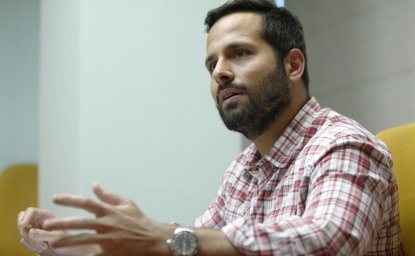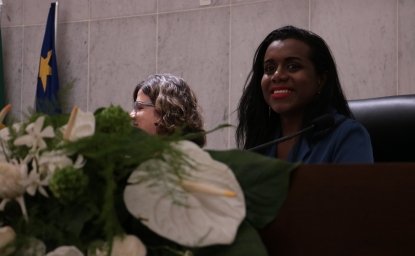
A blog of the Wilson Center
As the campaign season begins to take shape in Brazil, several of the new political movements have aligned with political parties to launch candidates for office. Brazil’s electoral laws prohibit independent candidates. As a result, the political and social movements that have coalesced over the past four years in Brazil, galvanized by the political crisis, must join the party system they have so frequently critiqued in order to gain a seat at the table and work toward the changes they advocate.
Agora! and Acredito have emerged as early leaders among the movements in positioning themselves to enter the formal political arena. Agora! co-founder, Humberto Laudares (see InoVozes interview with Laudares here) emphasized in a recent interview that his movement wants to partner with political parties that will respect and value their form of political action. They are searching for political actors that are receptive to their message and willing to sponsor candidates in the October election without limiting their views or silencing their ideals.
In March, the movement Agora! signed a formal partnership with two political parties in Brazil, the relatively-new Sustainability Network (Rede) of Marina Silva and the Popular Socialist Party (PPS), allowing members of the movement to run for elected office in October of this year under the parties’ banners. Acredito similarly signed agreements with Rede and PPS, and announced they were considering agreements with the Brazilian Socialist Party (PSB) and Green Party (PV) as well.
These partnerships represent an innovation in the Brazilian political arenas. Political parties in Brazil have a monopoly on the power to nominate candidates, thereby limiting access to power. In the past, there has been no room for outside actors to formally contribute or influence party agendas and nominations. Events over the last four years, however, have forced many to reconsider the structure of Brazilian party politics. The president of PPS, for example, called the Brazilian party system outdated and said it requires transformation. In signing agreements with Agora! and Acredito, the party is taking a first step on this path: adapting the political game to meet new demands.
Tellingly, the contracts signed between these organizations provide space for a working relationship without abdicating either side’s autonomy. For example, the agreements with Rede and PPS give Agora! the right to vote on internal party agendas, but the movement is also free to enter partnerships with other parties. On the flip side, Rede and PPS can enter agreements with other political movements (as they did with Acredito), including with movements that do not share the same political views as Agora! Both sides see benefits: underscoring its satisfaction with the deal, Rede celebrated the contract with Agora! in Brasília through an event that included Marina Silva, the most likely presidential candidate for the party in October. Luciano Huck, a prominent TV host and outspoken member of Agora! (who for several months was rumored to be considering a run for the presidency), similarly declared his support.
Only time will tell if these types of partnerships will lead to positive political change in Brazil; success on the ballot in October is only the first hurdle. Yet as Agora!, Acredito, and other movements seek alliances with relatively mainstream but less traditional parties, avoiding those heavily involved in the corruption scandals that have contributed to the political disenchantment of the population, they highlight the nascent rise of a younger generation of leaders determined to renew their country’s democratic system.
Author

University of California, Berkeley

Brazil Institute
The Brazil Institute—the only country-specific policy institution focused on Brazil in Washington—aims to deepen understanding of Brazil’s complex landscape and strengthen relations between Brazilian and US institutions across all sectors. Read more

Explore More in InoVozes
Browse InoVozes
Interview with Marcelo Calero, Career Diplomat and Federal Deputy

Interview with Tiago Mitraud, Federal Deputy and Leader of RenovaBR

Interview with Robeyoncé Lima, a Voice for Pernambuco’s LGBTQ+

